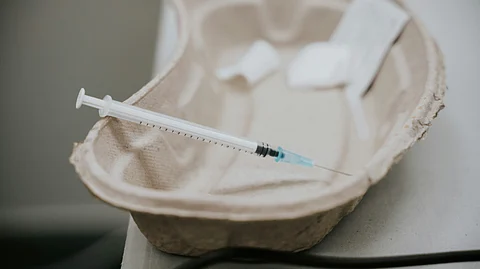

The HPV (human papillomavirus) vaccine, a critical tool in cervical cancer prevention, has been shown to offer sustained protection with just a single dose, according to recent studies. Unlike most vaccines that require two or three doses to maintain antibody levels, the HPV vaccine stands out for its unique ability to provide long-term immunity against the virus.
Dr. Partha Basu, head of the Early Detection, Prevention, and Infections Branch at the International Agency for Research on Cancer (IARC), emphasized this benefit. “Even with a single dose, antibody levels remain high and sustained for many years,” he stated. Dr. Basu is one of the lead authors of a series of studies investigating the efficacy of a single-dose HPV vaccination, particularly in low- and middle-income countries where healthcare resources are often limited.
The findings, presented at the 36th International Papillomavirus Conference (IPVC 2024) in Edinburgh, UK, and published in a special issue of the Journal of the National Cancer Institute Monographs, align with the WHO’s Cervical Cancer Elimination initiative. They suggest that a single-dose vaccination strategy could serve as a best practice in resource-scarce areas.
Key Findings from the Studies
The research highlighted that a single dose of the quadrivalent HPV vaccine is as effective as two or three doses in preventing persistent infections caused by HPV types 16 and 18. These two types are responsible for nearly 80% of cervical cancer cases in low- and middle-income countries. Furthermore, the protection provided by a single dose has been observed to last for up to 15 years, offering an impactful and long-term solution to at-risk populations.
Dr. Basu underscored the significance of these findings. “Single-dose vaccination offers effective, long-lasting protection against HPV infections and cervical pre-cancers,” he explained. He added that this approach is simpler, more accessible, and cost-effective, which could significantly benefit resource-constrained nations. Additionally, reduced HPV positivity rates and a decreased need for colposcopy and treatment are expected to lower healthcare costs.
Relevance to India’s HPV Vaccination Targets
Globally, efforts to eliminate cervical cancer gained momentum in 2020, when 194 countries resolved to eradicate the disease. Since then, 144 countries have introduced HPV vaccines, and over 60 have incorporated cervical screening into their healthcare systems. About 83 nations have included surgical care for cervical cancer in their health-benefit packages.
In India, however, progress has been slower. While the government has announced plans for a nationwide vaccination programme aimed at protecting women and girls from cervical cancer, the HPV vaccine is yet to be introduced into the national immunisation schedule.
This delay has significant consequences. Each year, over 100,000 women in India are diagnosed with cervical cancer, with 70% detected at an advanced stage. Survival rates remain alarmingly low, with fewer than one-third of these women living beyond five years.
Dr. Basu expressed concern over the postponement, stating, “By delaying vaccination, thousands of girls are being pushed into a lifetime risk of cervical cancer.” He emphasized that adopting an indigenously developed HPV vaccine would address the issue and save countless lives.
The Road Ahead
The adoption of single-dose HPV vaccination could revolutionize cervical cancer prevention in India and globally. The sustained protection it offers, combined with its affordability and accessibility, makes it a practical choice for countries with limited healthcare infrastructure.
As these findings continue to gain recognition, it is hoped that India and other nations will prioritize the inclusion of HPV vaccines in their immunisation programmes. Doing so could significantly contribute to reducing cervical cancer rates and achieving the WHO’s elimination targets.
References:
International Agency for Research on Cancer. IARC Evidence Summary Brief No. 4: Evidence Summary on [Specific Topic]. Lyon, France: World Health Organization, April 2023. Accessed November 25, 2024. https://www.iarc.who.int/wp-content/uploads/2023/04/IARC_Evidence_Summary_Brief_4.pdf.
World Health Organization. "One-Dose Human Papillomavirus (HPV) Vaccine Offers Solid Protection Against Cervical Cancer." WHO Newsroom. April 11, 2022. Accessed November 25, 2024. https://www.who.int/news/item/11-04-2022-one-dose-human-papillomavirus-(hpv)-vaccine-offers-solid-protection-against-cervical-cancer.
(Input from various sources)
(Rehash/Ankur Deka/MSM)
